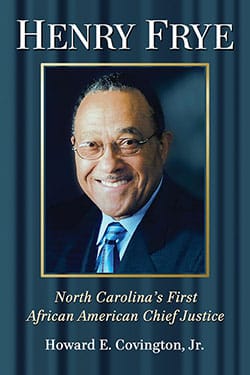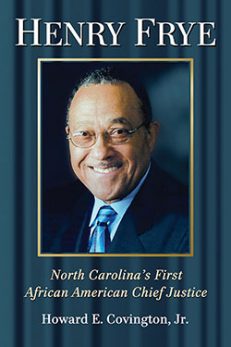Henry Frye
North Carolina’s First African American Chief Justice
$29.95
In stock
About the Book
Henry E. Frye came of age just as the South was beginning a transformational change. When he graduated from college in 1953, African Americans like him could only hope that the future would be different from the past. At the close of his public career in 2001, he was chief justice of the North Carolina Supreme Court—the head of the state’s third branch of government. Throughout their lives, Frye and his wife, Shirley, were in the vanguard of the advances that shaped the lives of African Americans. His election to the state legislature in 1968 was the beginning of steady, determined efforts to expand opportunities for African Americans in politics, business and society at large. This book traces, along with his career, the growing participation of African Americans in the civic, political and social life of North Carolina.
About the Author(s)
Bibliographic Details
Howard E. Covington, Jr.
Format: softcover (6 x 9)
Pages: 288
Bibliographic Info: 31 photos, notes, bibliography, index
Copyright Date: 2013
pISBN: 978-0-7864-7575-9
eISBN: 978-1-4766-0572-2
Imprint: McFarland
Table of Contents
Preface 1
Introduction 3
1. Hen’rell 7
2. Aggie Pride 20
3. “It was going to be slow” 38
4. Law School 52
5. Henry Frye, Esquire 67
6. “If not now, when?” 86
7. The Election 102
8. Representative Henry Frye 120
9. Greensboro National Bank 143
10. Working on the Inside 169
11. The Court 193
12. In Chambers 211
13. Chief Justice 230
14. Making a Difference 251
Chapter Notes 261
Bibliography 269
Index 273
Book Reviews & Awards
- “Covington writes well. One of the book’s strengths is the insight it offers into the life of a middle-class African American family”—The North Carolina Historical Review
- “well told”—The News & Observer
- “Covington uses Frye’s story to reflect on a revolutionary time in the state, when Frye and his wife broke a number of color barriers by their involvement in the vanguard of political, social, and civic events and issues”—Reference & Research Book News





